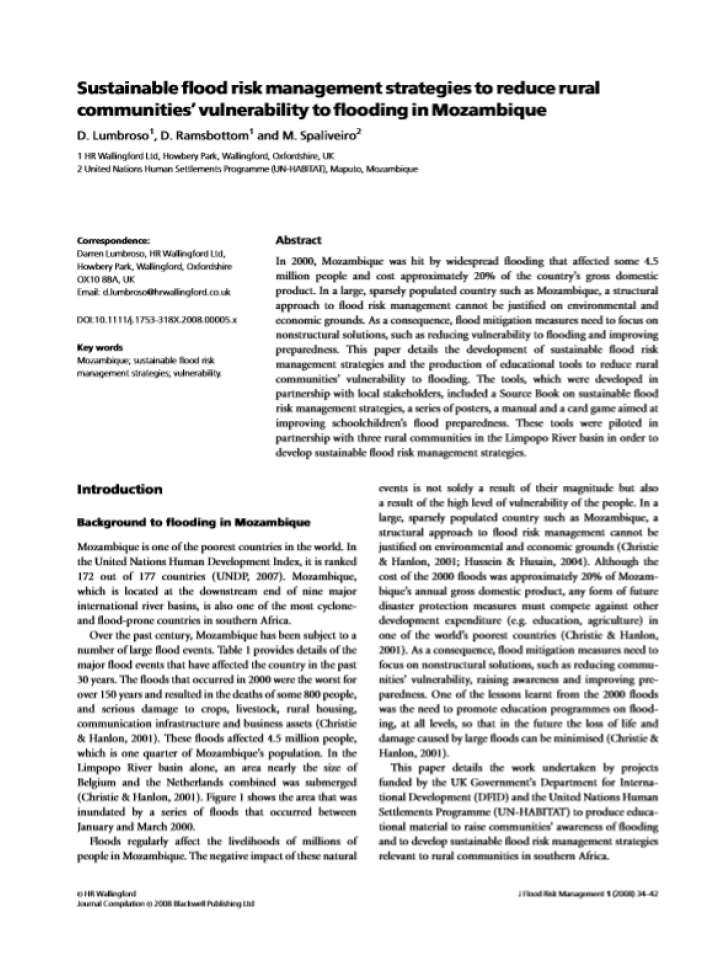Sustainable flood risk management strategies to reduce rural communities' vulnerability to flooding in Mozambique
In 2000, Mozambique was hit by widespread flooding that affected some 4.5 million people and cost approximately 20% of the country’s gross domestic product. This paper details the development of sustainable flood risk management strategies and the production of educational tools to reduce rural communities’ vulnerability to flooding. The tools, which were developed in partnership with local stakeholders, included a Source Book on sustainable flood risk management strategies, a series of posters, a manual and a card game aimed at improving schoolchildren’s flood preparedness.
The Source Book and checklists were used by the facilitators of the workshops, in partnership with the communities, to develop mitigation measures that fell into the following categories:
- Things that could be done by the communities immediately;
- Measures that could be implemented by the communities with technical assistance from external organisations including the District Administration, local disaster management agency and NGOs;
- Measures that can be implemented if a small amount of funding and external assistance were available to the communities.
These tools were piloted in partnership with three rural communities in the Limpopo River basin in order to develop sustainable flood risk management strategies.
Explore further
